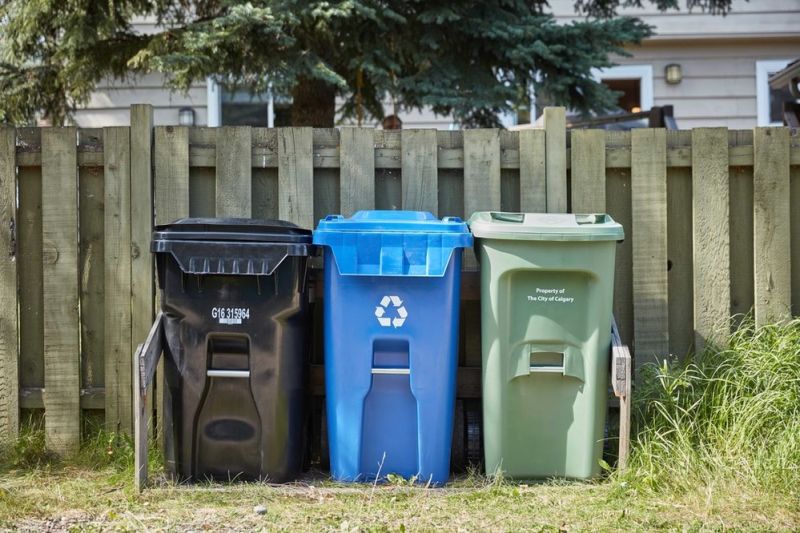Calgarians could soon pay black cart fees based on how many times the bins are collected by city garbage trucks.

The city is looking at setting up a pilot project where radio frequency identification (RFID) technology is used for garbage pick up.
Black carts already have RFID chips and with the right information collection system garbage trucks would be able to collect the data on how many times the carts are picked up.
On Wednesday, a report went to city hall’s utilities and corporate services committee stating that while programs are common in Europe there are no major North American cities that use the system.
Rick Valdarchi, director of waste and recycling for the City of Calgary, said there would be a lot of pre-planning work if the city decided to go with a pilot project.
“There’s just not a lot of examples of this being applied, certainly not in North America. We’re aware of one community in Quebec and it’s a small community,” Valdarchi said.
“When you’re talking about the application of a technology that’s going to include billing technology, we have to make sure that it works.”
The city said a pilot project would look at efficiencies for city operations as well as for customers.
The report to the committee said that roughly 40 per cent of the black carts that are put out for collection are half full or less.
“What that suggests to us is those are households with the potential to put out the carts less frequently,” Kate Trajan, leader of strategic planning of Calgary waste and recycling, said.
“If on the occasional collection day they think, ‘I don’t need to put it out. I’ve only got one or two bags of garbage in there. I’m going to wait for the next one,’ and they do that, then they would save money on their next bill.”
Trajan said the city could also see savings in less wear and tear on equipment. And drivers who typically go to 1,200 homes per shift could see that expanded without having to pick up as many black carts per shift.
The next step for the program is a pre-pilot plan where the city will talk to customers through surveys and in-person interviews to get their views on the idea and determine potential cost savings.
The city will also look at what kind of system needs to be built for the pilot project and which communities would be involved.
- Firefighters battle blaze at vacant house in northwest Calgary
- 7 sent to hospital after carbon monoxide poisoning incident in northwest Calgary
- Calgary man accused of embezzling millions while working as financial adviser in Red Deer
- New Calgary puppet show encourages kids to find ‘magic moments’ in nature








Comments